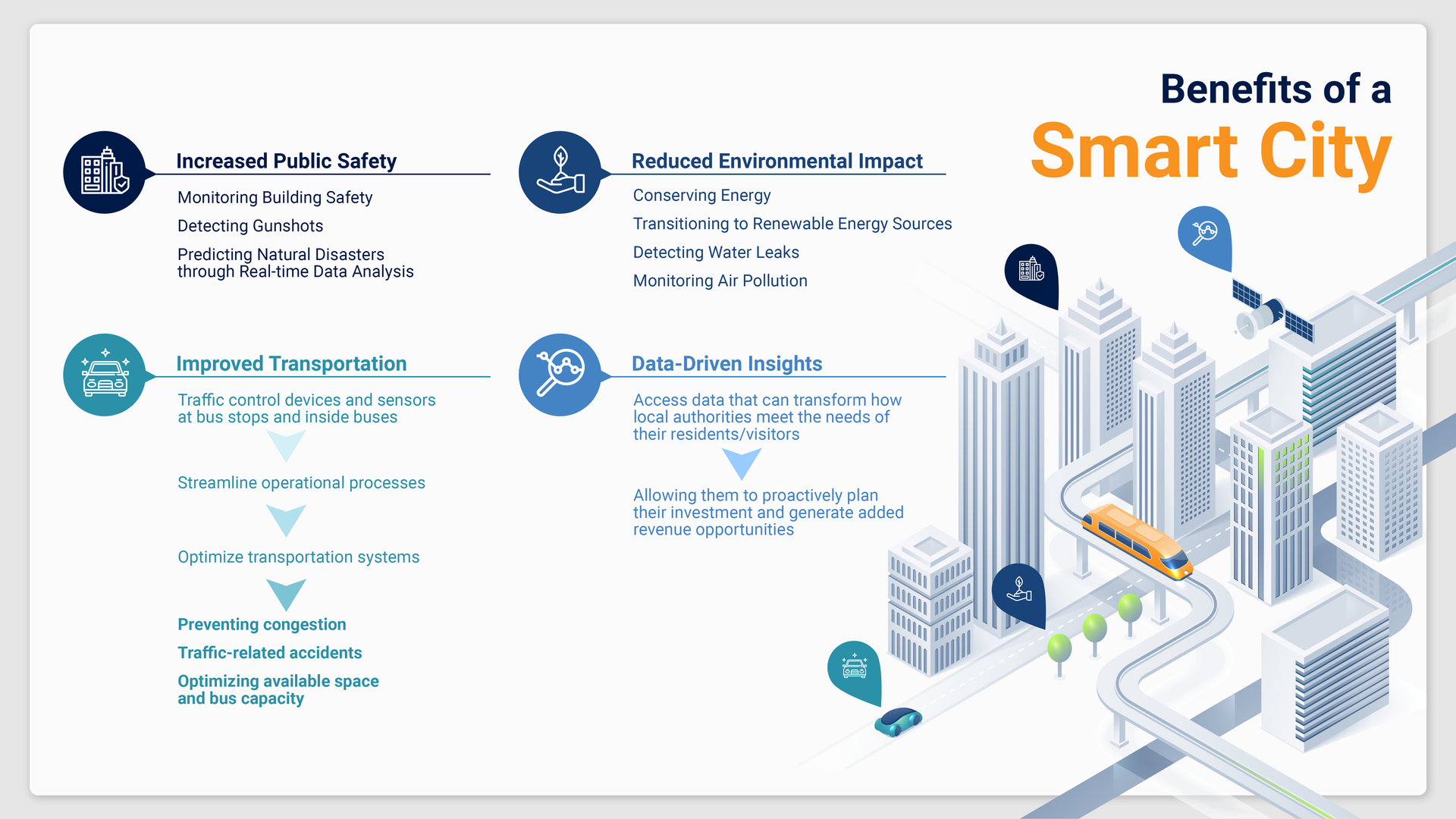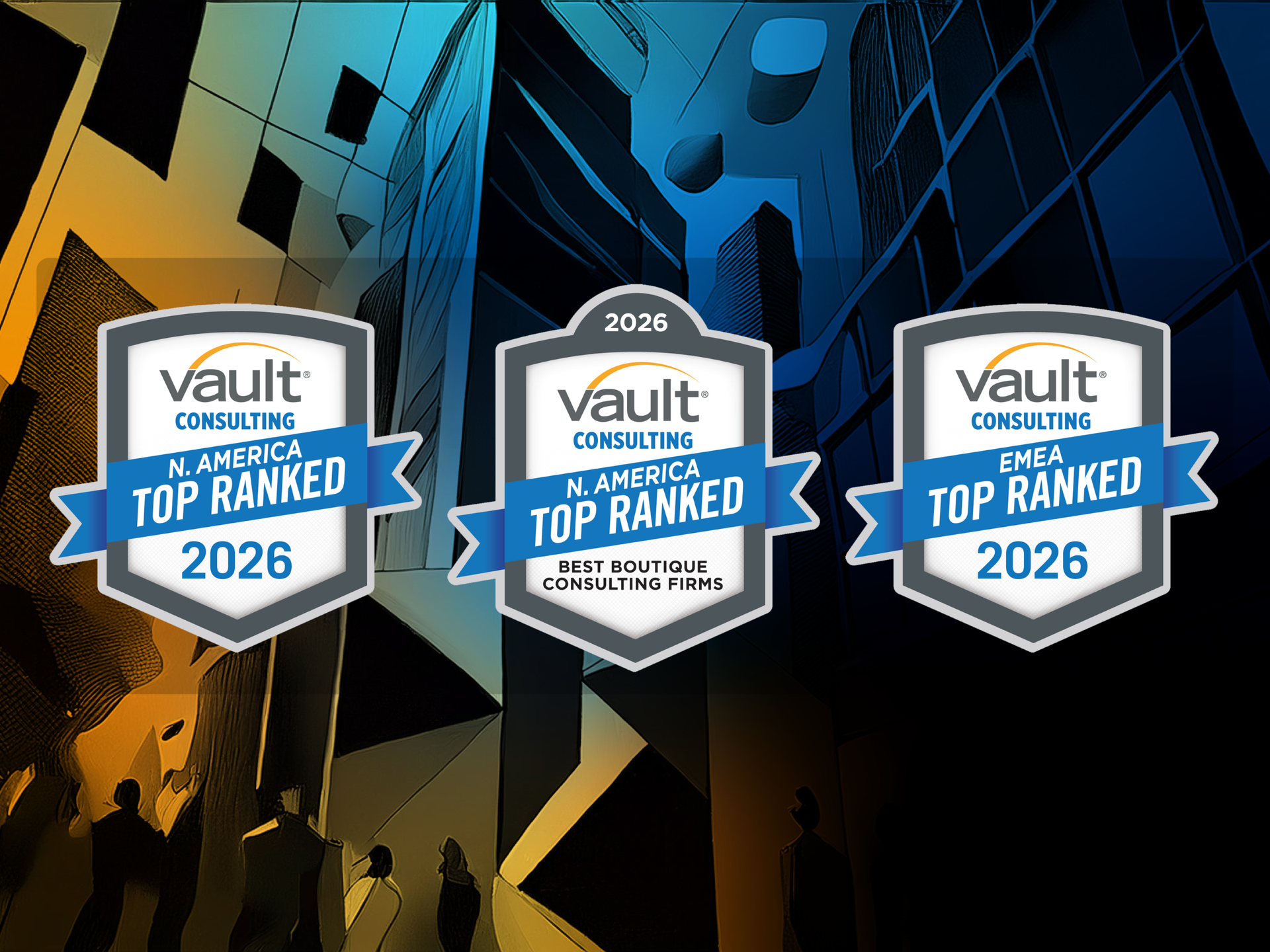Share
Smart Cities: Leveraging Technology for Sustainable Urban Development in the 21st Century.
As more people surge into urban areas around the world, the swelling population creates strain for infrastructure and services. Over the next three decades, urbanization will add another 2.5B people to cities around the world. Global cities now account for more than half of the world’s population, and the United Nations projects the number to balloon to 68% by mid-century.
How will residents navigate through and around cities, and how will cities provide energy, water, sanitation, and other basic needs? The new evolving smart cities will leverage Internet of Things (IoT) based technology and integrate an online population into new systems to make this a reality.
What are Smart Cities and their benefits?
The idea of smart cities has been in existence for decades, but with the rise of new technologies, more cities are now embracing the concept.
By utilizing connected solutions like IoT devices strategically placed around the city, smart cities gather data that can be analyzed to improve the overall quality of life for residents. Smart city technology can help enhance services, promote sustainability, and encourage economic development—all while ensuring the well-being of citizens. Although the definition of a smart city is still evolving, leveraging information and communication technologies is crucial to achieving these goals. With the increasing importance of urbanization, the development of smart cities is set to become even more critical in the coming years.
Benefits of a Smart City
Public Safety
Smart technology can improve public safety by monitoring building safety, detecting gunshots, and predicting natural disasters through real-time data analysis.
Improved Transportation
Smart city technologies such as traffic control devices and sensors at bus stops and inside buses can streamline operational processes and maximize transportation systems, preventing congestion and traffic-related accidents while optimizing available space and bus capacity utilization.
Reduced Environmental Impact
Smart cities can reduce environmental impact by conserving energy, transitioning to renewable energy sources, detecting water leaks, and monitoring air pollution.
Data-Driven Insights
Smart cities produce valuable data that can transform how local authorities meet the needs of their residents and visitors, allowing them to proactively plan their investment and generate added revenue opportunities.
Smart cities are being developed around the world. Some notable examples include:
- Singapore: A range of technologies to optimize city services and improve the quality of life of its citizens, including an extensive network of sensors and a centralized command center for managing city services.
- Barcelona: A network of smart streetlights that sense and adjust lighting levels based on the presence of pedestrians and vehicles.
- Amsterdam: A system for monitoring and reducing energy usage in city buildings and a sensor network for monitoring air quality.
- Dubai: Striving to become one of the world's most advanced smart cities, with a focus on using technology to enhance city services and improve the quality of life of its citizens.
- New York City: A program for monitoring and reducing energy usage in city buildings and a sensor network for monitoring air quality.
Challenges and Risks in Implementing Smart Cities
Although smart cities hold immense potential for the future, they also bring along several risks and challenges such as privacy and security concerns, uneven benefits distribution, interoperability and technological issues, lack of standardization, community involvement, and over-reliance on technology.
Addressing these issues at the outset is imperative to ensure efficient and effective implementation of smart city initiatives. Furthermore, there is an increasing focus on data security and privacy, as well as standardization and interoperability, to facilitate the smooth integration of various smart city solutions and systems.
Future Trends and Adaptation in Smart Cities
The future trends and adaptation in smart cities are focused on building resilient, sustainable, and citizen-centric cities. This includes using emerging technologies like 5G, artificial intelligence (AI), and blockchain to enhance the capabilities of smart cities. It also involves developing new business models, public-private partnerships, and community engagement strategies to ensure the successful implementation and adoption of smart city initiatives.
Ultimately, the goal is to create cities that are more efficient, equitable, and environmentally friendly, while enhancing the quality of life for their residents.
Investment Trends in Smart City Technology
Private equity investment in smart city technology has been steadily increasing in recent years. According to Pitchbook, in 2020, there were 223 private equity deals related to smart city technology, with a total investment value of $10.6B. This represents a significant increase from 2015, when there were only 86 deals worth $1.9B. GlobalData reports that the smart cities market was valued at $5.11B in 2021 and is expected to grow at a CAGR of 8.1% during 2022-2026.
Industries like transport, household hardware, robotics, and AI are engaged in establishing efficient connective sensors across entire cities. In 2022, several companies raised multimillion-dollar deals by producing connected products and services for smart cities.
Sources
- “Smart Cities: Cities using technological solutions to improve the management and efficiency of the urban environment.” European Commission, May 2023.
- “Which cities are smart cities? 5 examples of smart cities around the world.” NEC, Feb. 2022.
- “Top 10 Growing Smart Cities.” The American Society of Mechanical Engineers, Feb. 2020.
- “Urbanization.” United Nations, Population Division, retrieved May 2023.
- “Advantages and disadvantages of Smart Cities.” BBVA, May 2021.
- “Smart City Advantage And Disadvantages.” Dubai Sensor, Nov. 2022.
- “The challenges and opportunities of Smart Cities.” Smart City, May 2023.
- “ESG: SOCIAL GOOD FOR THE REAL ESTATE INDUSTRY.” bee smart city, May 2023.
- “11 ways cities can adopt an ESG approach to development and management.” World Economic Forum, Jan. 2023.
- “Thinking about becoming a smart city? 10 benefits of smart cities.” Plante Moran, Apr. 2018.
- “How smart urban areas can benefit everyone.” World Economic Forum, Jul. 2022.
- “Smart City Market estimated to achieve USD 6782 Billion by 2032, North America to be in the lead.” Globe Newswire, Apr. 2023.
- “Investing In Innovation: The Rise Of The Smart City.” Forbes, Dec. 2020.
- “Revealing the 10 biggest smart city funding deals of 2022.” Verdict, Feb. 2023.








